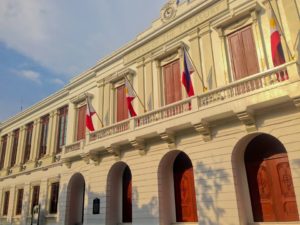MANILA, Philippines—A subset of Islamic banking in the Philippines that specializes in microfinance lending has widened its footprint in Muslim majority provinces of the country, but can benefit more stakeholders with policy support by national government agencies, according to its proponents.
At an online forum, officials of ASA Philippines Foundation Inc. said its total financing portfolio at the end of the first quarter of 2021 stood at P23.3 billion, of which P540.8 million are outstanding loans to borrowers in the Bangsamoro Autonomous Region in Muslim Mindanao.
The firm currently operates 32 branches, employs total staff of 186, of which 165 are microfinance officers, said its senior director Ferdinand Jikiri.
Jikiri dispelled the notion that Islamic lending to borrowers in BARMM is risky, pointing to company data that showed an average 87.13 percent repayment rate for microfinance loans it underwrote in the region, compared to a lower repayment rate of 84.91 percent for its operations in the rest of the country.
“In general, Islamic microfinance in BARMM is not that risky and is also self-sustainable,” Jikiri said, as he called for the creation of a roadmap that will help develop Islamic microfinance in one of the least developed regions of the country. “The support of the government and regulatory authorities on Islamic microfinance implementation is important.”
Microfinance is a more specialized activity under the larger Islamic banking effort that recently received a policy boost from the Bangko Sentral ng Pilipinas (BSP) which has been actively promoting financial services that are compliant with Muslim laws and traditions.
Islamic finance prohibits the charging of interest on loans, but instead calls for lenders and borrowers to share in profits from the undertaking that is being funded. It also prohibits lending to activities that are prohibited by Islam, including the pork and alcohol industries, gambling and pornography, tobacco and financial activities that collect interest.
ASA Philippines Foundation president and CEO Kamrul Tarafdar called on stakeholders in the government to help Islamic banking gain more traction by establishing a National Shariah Board for financial institutions that would help govern the activities of market players, including determining which lending activities are permitted by Shariah law.
“In the absence of the [National Shariah Board], the Islamic finance wholesale products are not available,” he said.
Tarafdar said two of the challenges to the lending business in the region were its peace and order situation and the state of its civil registry, which was important to establish the bonafides of would-be borrowers.


